Tears of Joy? How Emotional Experiences Became Travel’s Hottest Must-Have
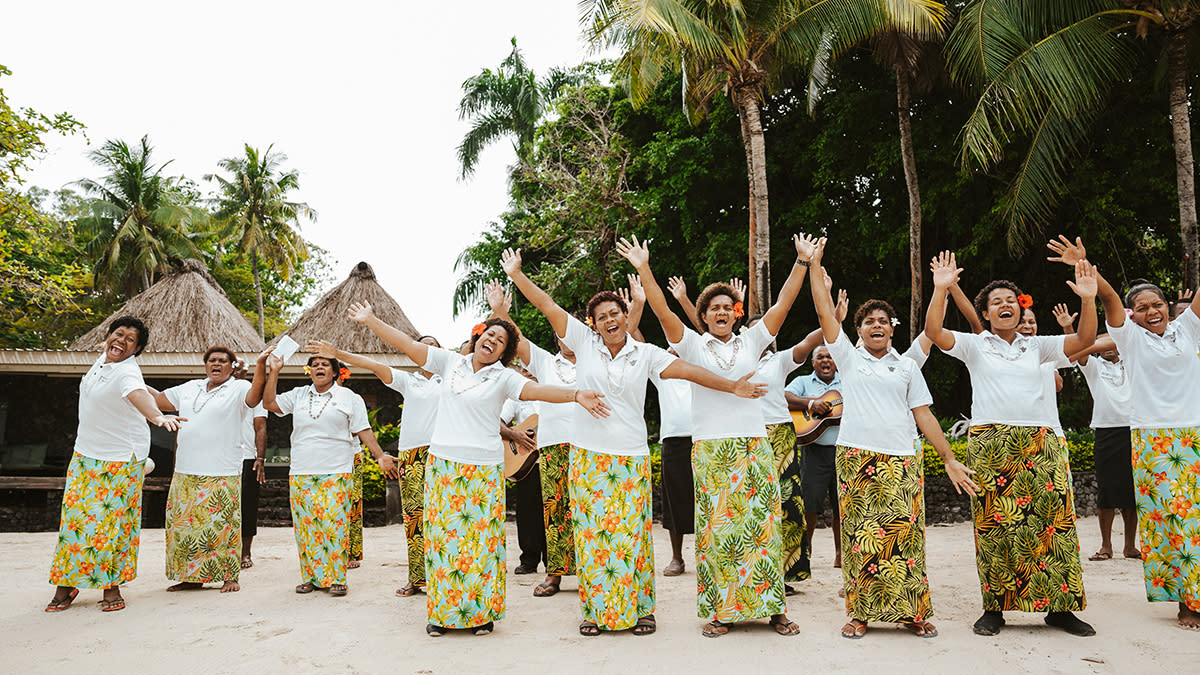
Every evening on Turtle Island a small circle forms on the beachfront. Couples discuss their home lives over cocktails and “mamas and papas”—the resort’s uniquely intimate variation on butlers—listen. Then, as the sun sets, something unusual happens. One by one, those who are departing by seaplane from this Yasawan isle off Fiji’s northwestern coast pour out their hearts. They recall the five or more nights they’ve spent here, the minimum length of stay. They share how they were touched by their mamas’ gentleness, by the smiles of the local village children, and by the late nights spent sitting on the kava mat with the resort’s maintenance workers, farmers and cleaners.
For the uninitiated, it’s all very sincere. When the tears begin to flow, as they inevitably do, it’s bewildering. Then, four nights later, when it’s time to recount their own experience something strange happens; the ducts of hardened cynics loose.
More from Robb Report
Forget a Suite. This Private Resort Off Panama Has a New Villa That Comes With Its Own Beach.
A 417-Acre Private Island Off the Coast of Scotland Can Be Yours for $3.1 Million
The Billionaire Buyout: Publicity Stunt or Ultimate Luxury Travel Triumph?
“One of our measures of success is the ‘tear factor,’” says Richard Evanson Jr., the owner and managing director of the private island. “How many people are crying when they say goodbye to the team on their departure? It’s actually quite a large percentage.”
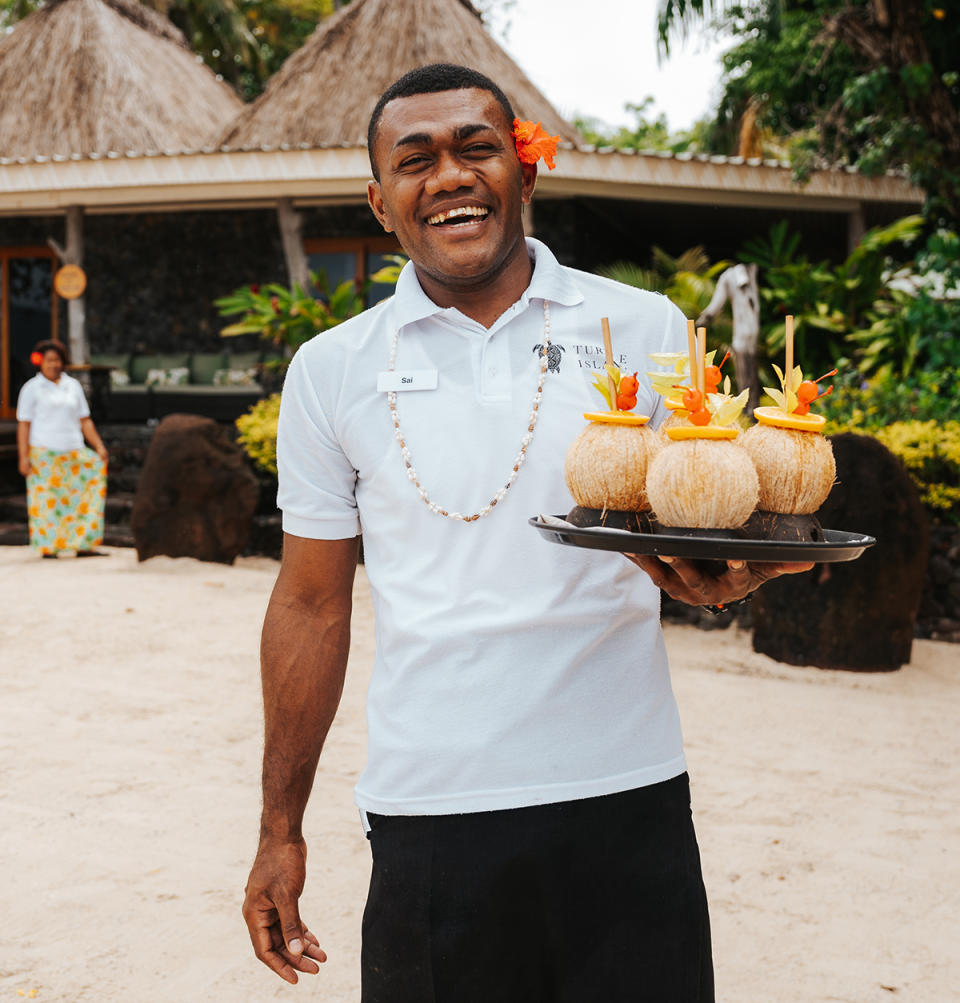
But moist handkerchiefs aren’t the only things that make Turtle Island unique in the world of 5-star beach resorts (rates start at $12,750 for the full, all-inclusive stay). It’s best known to outsiders as the backdrop to the 1980 Brooke Shield’s flick Blue Lagoon, and today it retains that simple, undeveloped castaway character. Notably, there is no central pool, spa, or gym. There is no Wi-Fi or television in the villas. Meals are served communally, usually outdoors. Each day couples are transported and marooned on one of a dozen private beaches to enjoy nothing more than a packed lunch, the tropical breeze, and each other. The slow daily rhythm of the resort floats on a mattress of traditional songs and mellow island guitar music performed by members of the 110 full-time staff that live and work here. To put that into context, there are only 14 bures on the 500 acre island, keeping the guest count at a maximum of 28.
“I grew up here as my father was building and creating this island, and something we used to talk about is how much we would prefer to be a seven-star emotional experience rather than a seven-star brick-and-mortar resort,” said Evanson, whose father, the late Richard Evanson Senior, sold his cable TV business to pursue a happier life on the island in 1972. “We made a conscious decision to focus on the emotional, intangible aspects of the experience, rather than the physical.”
That may sound very kumbaya, but don’t expect to find crystal waving woo-woo wackos here. Instead over dinner, doctors compare their collections of Ferraris. Aspen real estate tycoons order Napa cabs. Forty-year-old tech retirees come for the snorkeling. Some of Sen. John McCain’s ashes are sprinkled here, and former Australian PM Scott Morrison likes to drop by to play ukulele with the staff. Turtle Island’s reputation as a premier honeymoon destination, attracted Brittney Spears and K-Fed following their 2004 nuptials; as well as Jessica Simpson and Nick Lachey.
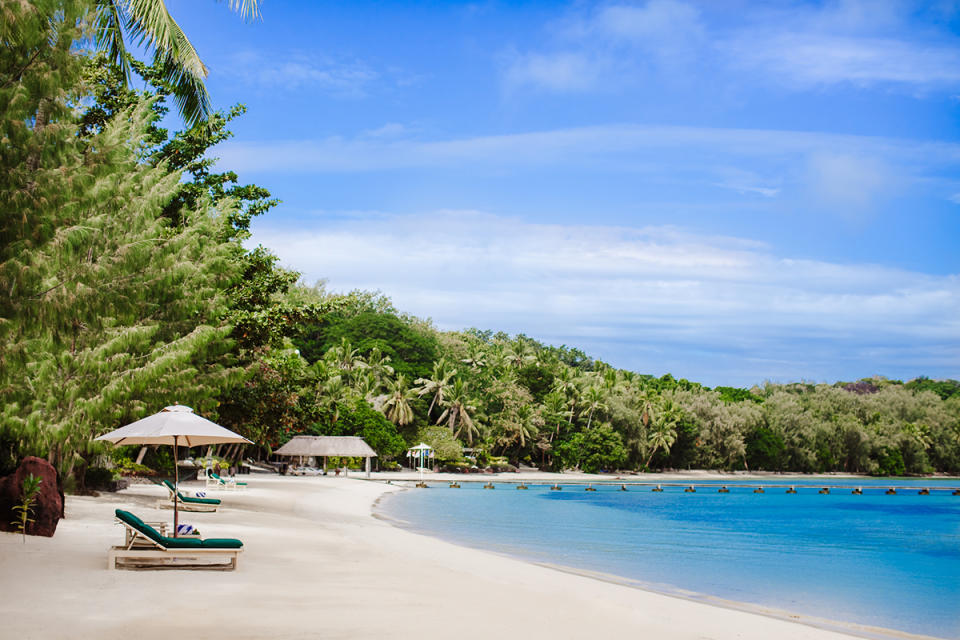
An impressive 55 percent of these guests return to the island at some point, and many, like the McCain family, have come again and again—presumably in pursuit of a healthy blubber.
“You may think that it’s unusual, but one of my philosophies in creating travel programs is: If you can make them laugh or cry during the experience you’ve done your job,” says John Sutherland, a lifestyle consultant and private concierge specializing in luxury travel. “You’ve got to remember that a lot of these people live in the city and lead very stressful lives. They go to places like this to absolutely let themselves go.”
Sutherland says emotional experiences are what his clientele crave, so he’s based his business on experiences that make bosoms swell.
“A client from Malaysia came to me and said, ‘Now that I’ve made a lot of money, I’ve asked my father if there was anything that he’s dreamed about all his life but never done. He said that he’s always envisioned himself flying into the creator of a volcano. He wants to fly into an inactive volcano and just walk around,’” Sutherland says. “So he got two helicopters and took the family into a crater in Indonesia. I said, ‘What did your father say?’ And I got the classic line: ‘He couldn’t say anything. He couldn’t speak.’ There is nothing that stirs emotions more than fulfilling a childhood dream.”
But the market for emotion isn’t universal.
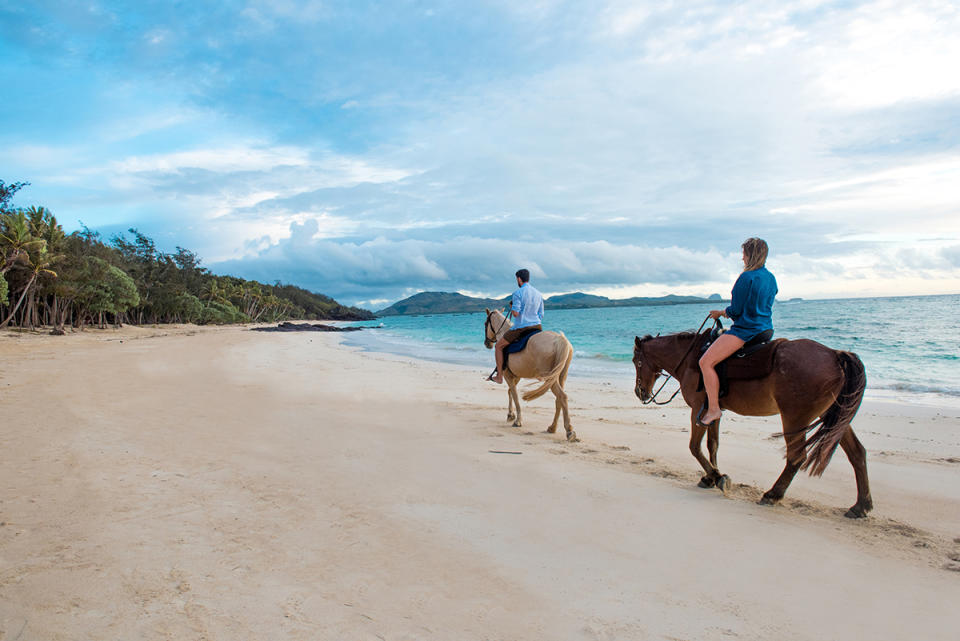
“I cried when I left Fiji,” says Jaclyn Sienna India, founder and CEO of Sienna Charles. “I think it’s just a country wide thing. But places like Fiji and Bora Bora are for my L.A.-based clients only, and it’s a home run trip for them because it’s just a quick overnight and then they’re in another world. If you say ‘Fiji’ to a New York client, they think you are an absolute idiot.”
The stiff upper lip and pathological fear of sincerity stereotypical of the British is similarly at odds with the maternal-embrace of places like Turtle Island; even Evanson admits that “Americans get the most out” of his resort.
However, India adds that due to a lack of well-managed private islands, places like Turtle are ideal as buyouts for families or corporate retreats no matter where you’re from. (It’s $36,600 per night to buy out Turtle Island.)
“It’s a place to bring grandma or celebrate mom’s 60th birthday,” she says. “You are creating that immersive experience while still having that safety net of being at a really well-run hotel.”
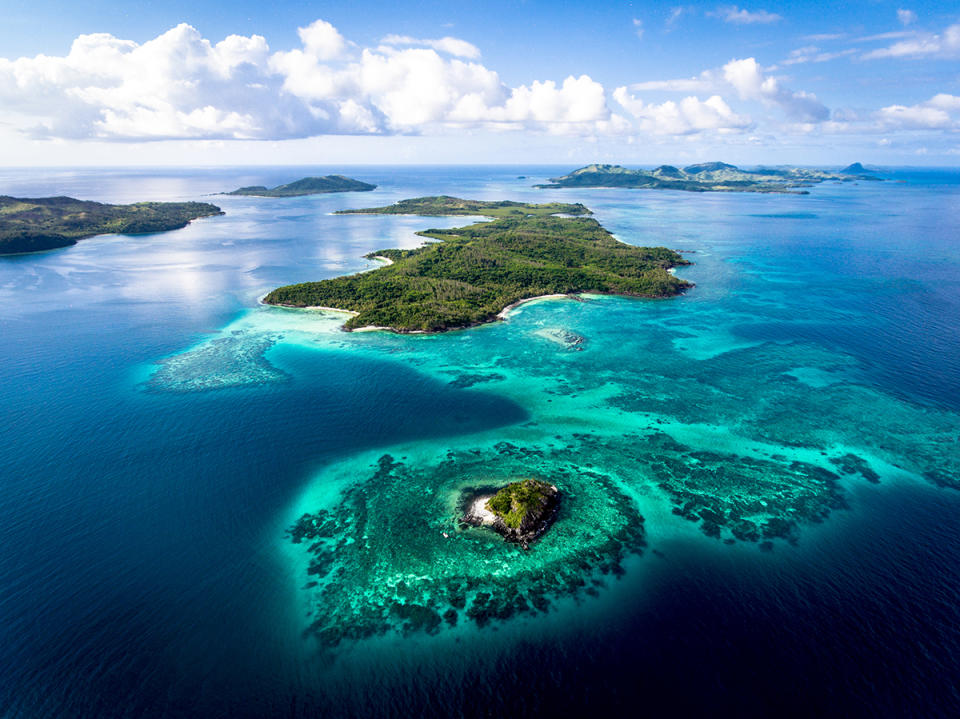
Nevertheless, Evanson says that when it comes to crafting tailored, emotional experiences for his guests (be they British or American), he wins over more than he loses. He says the key is successfully managing guest expectations, encouraging staff to create relationships with guests, and enhancing conversations. One example, he says, is that the island’s bure mamas keep pictures of their families with them, so that if a guest shares a story about their family back home, the mama can in turn share their own family with the guest.
“You know, I’ve asked a lot of people, ‘Hey, is there anything you would recommend or suggest?’” says Evanson. “What usually happens is at the beginning of their stay, they say, ‘Yeah, you know, you need a sauna. You need a gym. You need to have a pool.’ But by the end of their stay, the majority of them will come up to me and say, ‘By the way, scratch all that. Don’t change a thing.’”
Best of Robb Report
The Ultimate Miami Spa Guide: 15 Luxurious Places to Treat Yourself
The 7 Most Insanely Luxurious Spas in the World, From Tokyo to Iceland
17 Reasons the Caribbean Should Be at the Top of Your Travel Itinerary
Sign up for Robb Report's Newsletter. For the latest news, follow us on Facebook, Twitter, and Instagram.

 Yahoo Lifestyle
Yahoo Lifestyle 
